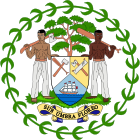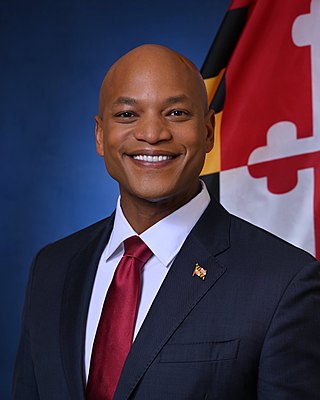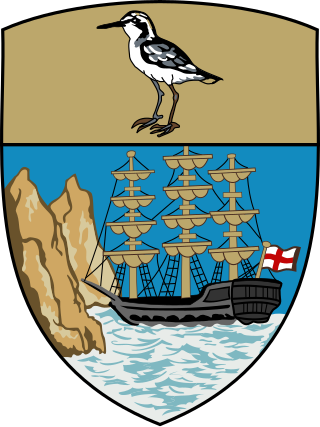 |
|---|
General elections were held in British Honduras in 1942.
 |
|---|
General elections were held in British Honduras in 1942.
The Legislative Council consisted of six elected members, four members appointed by the Governor, three officials (the Attorney General, the Colonial Secretary and the Financial Secretary) and the Governor, who served as president. [1] The elected members were elected from five constituencies, one of which (Belize) had two seats.
Voting was limited to British subjects or people who had lived in the territory for at least three years and who were aged 21 or over and met one of the financial requirements, which included paying an annual property tax of at least $6, paying at least $96 in rent a year, or being in receipt of an annual salary of at least $300. Anyone who had received poor relief from public funds in the three months prior to voter registration was ineligible. As a result of the criteria, only 1,383 people from a population of 61,723 were registered to vote. [2]
| Constituency | Elected member | |
|---|---|---|
| Belize | Eric Bowen | |
| Ricardo Meighan | ||
| Cayo | Salvador Espat | |
| Northern | Robert Turton | |
| Stann Creek | Henry Bowman | |
| Toledo | Samuel Vernon | |
| Source: British Honduras Gazette | ||
The nominated members were appointed on 27 May, with James Wilson Macmillan, Calvert Milford Staine, Neil Stuart Stevenson and Arthur Norman Wolffsohn appointed. [3]

The governor of the State of Maryland is the head of government of Maryland, and is the commander-in-chief of the state's National Guard units. The governor is the highest-ranking official in the state and has a broad range of appointive powers in both the state and local governments, as specified by the Maryland Constitution. Because of the extent of these constitutional powers, the governor of Maryland has been ranked as being among the most powerful governors in the United States.

British Honduras was a Crown colony on the east coast of Central America, south of Mexico, from 1783 to 1964, then a self-governing colony, renamed Belize in June 1973, until September 1981, when it gained full independence as Belize. British Honduras was the last continental possession of the United Kingdom in the Americas.

The Legislative Council, or upper house, is one of the two chambers of the Parliament of South Australia. Its central purpose is to act as a house of review for legislation passed through the lower house, the House of Assembly. It sits in Parliament House in the state capital, Adelaide.

The Legislative Council of Fiji was the colonial precursor to the present-day Parliament, which came into existence when Fiji became independent on 10 October 1970.

General elections were held for the first time in Singapore on 20 March 1948, when six of the 22 seats on the Legislative Council became directly-elected.

General elections were held in Singapore on 10 April 1951 to elect members to nine seats in the Legislative Council, up from six seats in the 1948 elections. A 32-day-long campaign period was scheduled, with nomination day on 8 March 1951. The result was a victory for the Progressive Party, which won six of the nine seats.

General elections were held in Northern Rhodesia on 20 March 1959, although voting did not take place in two constituencies until 9 April. The United Federal Party (UFP) was expected to win the elections, and did so by taking 13 of the 22 elected seats on the Legislative Council.
The Uganda Legislative Council (LEGCO) was the predecessor of the Parliament of Uganda, prior to Uganda's independence from the United Kingdom. LEGCO was small to start with and all its members were Europeans. Its legislative powers were limited, since all important decisions came from the British Government in Whitehall.

The Legislative Council was the legislature of Nyasaland.

General elections were held in Nigeria for the first time on 20 September 1923. The Nigerian National Democratic Party (NNDP) won three of the four elected seats in the Legislative Council.

General elections were held in Nigeria on 28 September 1928. The Nigerian National Democratic Party (NNDP) won three of the four elected seats in the Legislative Council.

General elections were held in Nigeria in 1933. The Nigerian National Democratic Party (NNDP) won three of the four elected seats in the Legislative Council.

General elections were held in Nigeria on 21 October 1938. The Nigerian Youth Movement (NYM) won three of the four elected seats in the Legislative Council, defeating the Nigerian National Democratic Party (NNDP), which had won every election since 1923.

Partial general elections were held in Nigeria in 1943, with only two of the four elected seats available.

General elections were held in Fiji in 1929. They were the first in which Indo-Fijians were allowed to vote.

General elections were held in Fiji in July 1937, the first in which an equal number of Europeans and Indo-Fijians were elected.

General elections were held in British Honduras in May and June 1948.

General elections were held in British Honduras in March and April 1939.

A two-part consultative referendum on changing the system of governance was held in Saint Helena on 17 March 2021. In the first question, voters were asked whether there should be a change. In the second, they were asked for their preference on the form of governance, choosing between a committee system and a ministerial system.

General elections were held in Grenada in February 1925.